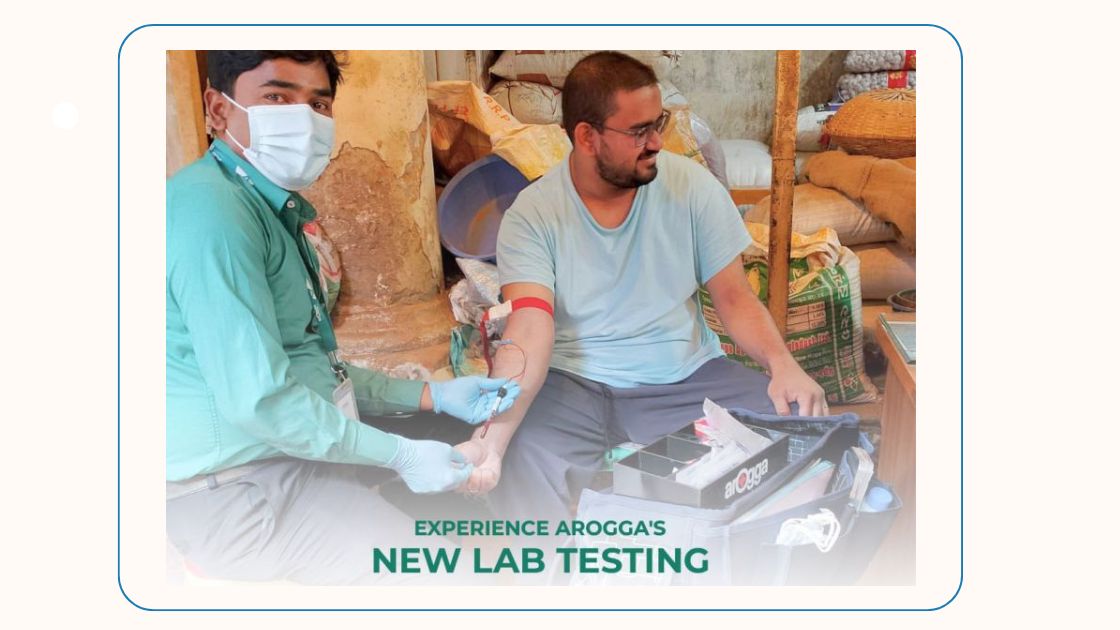
Arogga, one of Bangladesh's leading online pharmacies, has launched its lab testing service, marking a significant step towards becoming an integrated healthcare delivery platform.
For context, Arogga started as a medicine delivery service in December 2020, aiming to make authentic medicines more accessible in Bangladesh through its tech-enabled supply chain and e-commerce platform. Now, the company is venturing beyond just medicine delivery by offering at-home/work lab testing. Customers can book tests through Arogga's app, and have phlebotomists come to their location to collect samples. These are then processed through a network of partner labs, with reports delivered to the customers.
For customers who are time-starved or have physical limitations, the service offers excellent convenience. While Arogga started with on-demand medicine delivery, the company has always said it aims to provide 360-degree digital health services. This new move is apparently a first step towards that direction.
This expansion follows a broader trend we're seeing with online pharmacies in Bangladesh and globally, where players are using their customer relationships and logistics capabilities to push into adjacent healthcare verticals.
The playbook is simple: start with a narrower vertical like medicine delivery or doctor consultations to build an initial user base. Then, leverage that user base, technology stack, and fulfillment networks to offer more services spanning the healthcare continuum.
Healthcare is an integrated service, meaning services such as doctor consultation, lab testing, and other similar services follow each other. Someone who needs doctor consultation may need a lab test and subsequently medicine. This interconnected nature allows for aggregation. You can put one service on top of another. Arogga apparently aims to take advantage of this nature of healthcare services and scale into adjacent verticals.
Arogga, however, is not the first company looking to expand into multiple healthcare services verticals. There has been a slow race to aggregate, sometimes build, integrated digital healthcare solutions in Bangladesh of late. Several online pharmacy peers of Arogga such as MedEasy, and Osudpotro have a presence in more than one vertical. Amarlab, one of the first players in the at-home diagnostic services vertical in Dhaka, has also been eyeing related verticals. Praava Health, DoctorKoi, and DocTime all want to build integrated solutions using the technology’s ability to aggregate.
These players have pragmatic reasons for doing so.
First, Bangladesh's healthcare infrastructure is highly underdeveloped, with critical shortages of doctors, clinics, and diagnostic services—particularly outside major cities. Online, integrated platforms can help bridge this gap.
There's also a growing consumer demand for convenience stemming from the country's rising middle class, urbanization, and increasing digital adoption.
More strategically though, building an integrated healthcare delivery platform generates powerful competitive moats.
Online medicine delivery startups face competition from many digital and traditional healthcare companies who are tiptoeing into the vertical, creating a new competitive dynamic. Expanding into relevant verticals can help many of these players to build strategic moats.
Rather than being just a transactional e-commerce play constantly competing on price and logistics, it turns the online pharmacy into an indispensable healthcare companion that embeds itself deeper into users' lives. The more services a platform provides, the stronger its grip on the consumer relationship.
This resonates with Arogga's publicly stated goal of becoming "a health super app" offering the full gamut of services beyond just pharmacy.
However, pulling off an integrated healthcare platform is no easy feat, especially in a market like Bangladesh. As we have pointed out in an earlier piece: “Expansion into new verticals is always tricky and involves new questions and challenges. Healthcare is a complex service. Successful execution in any of these verticals will come with its own challenges. Furthermore, the viability of this integrated healthcare services model hinges on vigilantly guarding consumer trust. Any lapses in building and maintaining this trust could rapidly derail the credibility of these online pharmacies. Expanding prematurely can make this even more challenging. One approach to expansion that usually works is building sequentially — building a dominant business in one vertical and then moving into another.”
Overall though, despite the challenges, an integrated healthcare platform play holds major promise in markets like Bangladesh, if executed well. By starting with a narrower online pharmacy foothold and progressively expanding into other services, players like Arogga are staking their claim on this large opportunity.
Of course, the risk of overextending and spreading oneself too thin is always there. But if these emerging players can strike the right balance, nurture trust, and build robust service delivery capabilities, these integrated healthcare platforms could fundamentally reshape how healthcare is accessed and delivered in the country. Arogga's lab testing service is a fascinating early step in this high-stakes game that we will be following closely.
Cover photo Credit: Arogga announcement post on LinkedIn.
